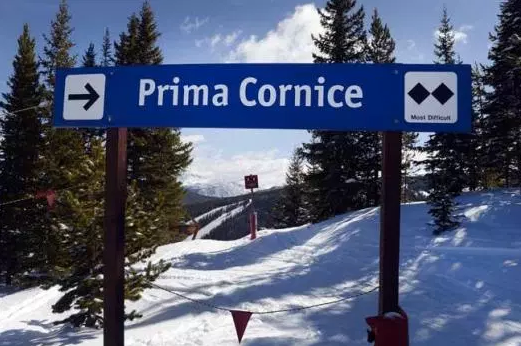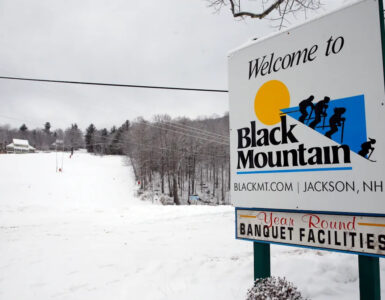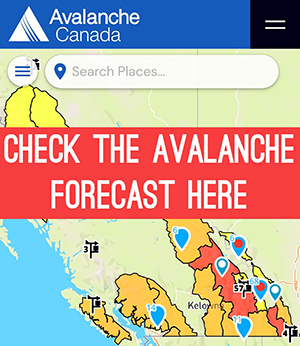The Colorado Supreme Court has denied an appeal by the family of a 13-year-old skier killed in an inbounds avalanche in 2012 at Vail ski area.
The court’s denial to hear the case effectively ends a nearly 10-year fight by the parents of Taft Conlin. Louise Ingalls and Steve Conlin argued that Vail ski area should have done more to close the Prima Cornice run that slid and swept their son through dense trees. The Eagle teen and several friends had entered an open lower gate on the run on Jan. 12, 2012, but sidestepped up a ridge to terrain below a closed upper gate.
An Eagle County District Court jury in June 2018 ruled Vail had properly closed the upper run. Ingalls and Conlin argued skiers for years had sidestepped up that ridge and the boundaries of the closure were unclear. They argued the ski area violated the Ski Safety Act by not closing both entrances to Prima Cornice. The case was one of the few times the venerable Ski Safety Act was tested in a jury trial. Most every lawsuit challenging the legislation is dismissed well before trial.
The parents appealed the district court ruling and promised that any money collected from their negligence lawsuit would go toward a scholarship in their son’s name.
The same day that Taft died, 28-year-old Christopher Norris was killed in an inbounds avalanche at Winter Park’s Mary Jane ski area. Avalanche danger across the state was extremely high that day, with long overdue new snow piling atop hard layers. The family of Norris appealed their wrongful death lawsuit to the Colorado Supreme Court. The state’s highest court in 2016 ruled inbounds avalanches were an inherent risk of skiing and therefore resorts were protected from lawsuits under the Colorado Ski Safety Act, which outlines the responsibilities of both skiers and resort operators.
The Colorado Supreme Court’s refusal to hear Taft Conlin’s case follows a 2020 ruling by the Colorado Court of Appeals that affirmed the district court’s dismissal of the negligence lawsuit.
Ingalls said her family pursued the lawsuit when they were unable to sway Vail or the Forest Service to make changes to how runs were managed and closed.
“We never wanted this to happen to anyone else ever again because it’s the most devastating, awful thing a parent can go through. Especially when you feel like it could have been avoided,” Ingalls said. “How was Taft supposed to know where to stop on that run?”
Ingalls said Vail Resorts has quietly changed how it closes Prima Cornice and other runs with two entrances.
“So in a way, we were successful with that,” she said, “but there is a lot I don’t feel good about.”
Ingalls earlier this year testified before a Colorado Senate committee in support of legislation that would require ski areas to publish closely guarded ski injury statistics. The Ski Areas Safety Plans and Accident Reporting Act followed a report by the Safe Slopes Colorado group that showed as many as 55 skiers and snowboarders arrive in high country emergency rooms every day of the ski season.
The Colorado Senate’s Agriculture and Natural Resources Committee rejected the bill.
“We are told we are responsible and this is a dangerous sport but we are not allowed to get the information we need to make safe decisions for us and our children,” Ingalls said in an interview on Tuesday. “Skiers are responsible for avalanche risk inbounds, but we are not allowed to dig pits or do any snow assessment on the mountain and there is no snow assessment information provided to us. That doesn’t make any sense.”
She remembers her first day back at Vail ski area the season after her son was killed. She asked a ski patroller what the avalanche danger was for the day.
“They said ‘Inbounds? We don’t have avalanches on Vail Mountain,’” she said. “I was so angry. This is an education issue.”
Ingalls, who moved from Eagle County several years ago, said she urges all her friends who still ski Vail to drop into ski patrol headquarters every powder day and ask about avalanche danger and what runs have been bombed or mitigated to reduce the risk of slides.
“If enough of us do that, maybe they will start sharing information,” she said. “There should be a mitigation report just like they give us grooming reports.”
Even though the appeal is dead, there is one more legal issue facing the family of Taft Conlin. They may be on the hook to pay court costs for Vail Resorts from the June 2018 trial in Eagle.
“There’s still more salt they can pour in our wound,” she said.
Source: The Colorado Sun













